Thx for having me @kstsosie @DecolonizeDNA! Today I will tweet about how ancient DNA (aDNA)  https://abs.twimg.com/emoji/v2/... draggable="false" alt="💀" title="Skull" aria-label="Emoji: Skull">
https://abs.twimg.com/emoji/v2/... draggable="false" alt="💀" title="Skull" aria-label="Emoji: Skull"> https://abs.twimg.com/emoji/v2/... draggable="false" alt="🧬" title="DNA" aria-label="Emoji: DNA">can be used to revisit the historical record, & reconsider the stories of underrep & minoritized communities across the Americas
https://abs.twimg.com/emoji/v2/... draggable="false" alt="🧬" title="DNA" aria-label="Emoji: DNA">can be used to revisit the historical record, & reconsider the stories of underrep & minoritized communities across the Americas  https://abs.twimg.com/emoji/v2/... draggable="false" alt="🧵" title="Thread" aria-label="Emoji: Thread">1/ #DecolonizeDNA #DNADay (Img: Systema Solar)
https://abs.twimg.com/emoji/v2/... draggable="false" alt="🧵" title="Thread" aria-label="Emoji: Thread">1/ #DecolonizeDNA #DNADay (Img: Systema Solar)
aDNA is the https://abs.twimg.com/emoji/v2/... draggable="false" alt="🧬" title="DNA" aria-label="Emoji: DNA">that persists in ancient tissues like
https://abs.twimg.com/emoji/v2/... draggable="false" alt="🧬" title="DNA" aria-label="Emoji: DNA">that persists in ancient tissues like  https://abs.twimg.com/emoji/v2/... draggable="false" alt="🦷" title="Tooth" aria-label="Emoji: Tooth">
https://abs.twimg.com/emoji/v2/... draggable="false" alt="🦷" title="Tooth" aria-label="Emoji: Tooth"> https://abs.twimg.com/emoji/v2/... draggable="false" alt="🦴" title="Bone" aria-label="Emoji: Bone">
https://abs.twimg.com/emoji/v2/... draggable="false" alt="🦴" title="Bone" aria-label="Emoji: Bone"> https://abs.twimg.com/emoji/v2/... draggable="false" alt="💀" title="Skull" aria-label="Emoji: Skull">, or the remains of
https://abs.twimg.com/emoji/v2/... draggable="false" alt="💀" title="Skull" aria-label="Emoji: Skull">, or the remains of  https://abs.twimg.com/emoji/v2/... draggable="false" alt="🦌" title="Deer" aria-label="Emoji: Deer">
https://abs.twimg.com/emoji/v2/... draggable="false" alt="🦌" title="Deer" aria-label="Emoji: Deer"> https://abs.twimg.com/emoji/v2/... draggable="false" alt="🌿" title="Herb" aria-label="Emoji: Herb">
https://abs.twimg.com/emoji/v2/... draggable="false" alt="🌿" title="Herb" aria-label="Emoji: Herb"> https://abs.twimg.com/emoji/v2/... draggable="false" alt="🐀" title="Rat" aria-label="Emoji: Rat">
https://abs.twimg.com/emoji/v2/... draggable="false" alt="🐀" title="Rat" aria-label="Emoji: Rat"> https://abs.twimg.com/emoji/v2/... draggable="false" alt="🐚" title="Spiral shell" aria-label="Emoji: Spiral shell">. It can inform us about evolution, ancient diversity & health. But bc of its age, aDNA is degraded and easily contaminated so we must handle it using lots of PPE, like this! 2/ #DecolonizeDNA
https://abs.twimg.com/emoji/v2/... draggable="false" alt="🐚" title="Spiral shell" aria-label="Emoji: Spiral shell">. It can inform us about evolution, ancient diversity & health. But bc of its age, aDNA is degraded and easily contaminated so we must handle it using lots of PPE, like this! 2/ #DecolonizeDNA
aDNA https://abs.twimg.com/emoji/v2/... draggable="false" alt="🦴" title="Bone" aria-label="Emoji: Bone">
https://abs.twimg.com/emoji/v2/... draggable="false" alt="🦴" title="Bone" aria-label="Emoji: Bone"> https://abs.twimg.com/emoji/v2/... draggable="false" alt="🧬" title="DNA" aria-label="Emoji: DNA">+ other lines of evidence
https://abs.twimg.com/emoji/v2/... draggable="false" alt="🧬" title="DNA" aria-label="Emoji: DNA">+ other lines of evidence https://abs.twimg.com/emoji/v2/... draggable="false" alt="🔍" title="Left-pointing magnifying glass" aria-label="Emoji: Left-pointing magnifying glass">
https://abs.twimg.com/emoji/v2/... draggable="false" alt="🔍" title="Left-pointing magnifying glass" aria-label="Emoji: Left-pointing magnifying glass"> https://abs.twimg.com/emoji/v2/... draggable="false" alt="📋" title="Clipboard" aria-label="Emoji: Clipboard">
https://abs.twimg.com/emoji/v2/... draggable="false" alt="📋" title="Clipboard" aria-label="Emoji: Clipboard"> https://abs.twimg.com/emoji/v2/... draggable="false" alt="🏺" title="Amphora" aria-label="Emoji: Amphora">
https://abs.twimg.com/emoji/v2/... draggable="false" alt="🏺" title="Amphora" aria-label="Emoji: Amphora"> https://abs.twimg.com/emoji/v2/... draggable="false" alt="⚰️" title="Coffin" aria-label="Emoji: Coffin">
https://abs.twimg.com/emoji/v2/... draggable="false" alt="⚰️" title="Coffin" aria-label="Emoji: Coffin"> https://abs.twimg.com/emoji/v2/... draggable="false" alt="💀" title="Skull" aria-label="Emoji: Skull">can reconstruct past events & their impact in the present. This is a powerful
https://abs.twimg.com/emoji/v2/... draggable="false" alt="💀" title="Skull" aria-label="Emoji: Skull">can reconstruct past events & their impact in the present. This is a powerful  https://abs.twimg.com/emoji/v2/... draggable="false" alt="🦸🏽" title="Superhero (medium skin tone)" aria-label="Emoji: Superhero (medium skin tone)">
https://abs.twimg.com/emoji/v2/... draggable="false" alt="🦸🏽" title="Superhero (medium skin tone)" aria-label="Emoji: Superhero (medium skin tone)"> https://abs.twimg.com/emoji/v2/... draggable="false" alt="✊🏽" title="Raised fist (medium skin tone)" aria-label="Emoji: Raised fist (medium skin tone)">way to understand the experiences of ppls who were marginalized, excluded or misrepresented in the written historical record
https://abs.twimg.com/emoji/v2/... draggable="false" alt="✊🏽" title="Raised fist (medium skin tone)" aria-label="Emoji: Raised fist (medium skin tone)">way to understand the experiences of ppls who were marginalized, excluded or misrepresented in the written historical record  https://abs.twimg.com/emoji/v2/... draggable="false" alt="📜" title="Scroll" aria-label="Emoji: Scroll">3/ #DecolonizeDNA #DNADay
https://abs.twimg.com/emoji/v2/... draggable="false" alt="📜" title="Scroll" aria-label="Emoji: Scroll">3/ #DecolonizeDNA #DNADay
For ex: I study ancient Indigenous communities who lived in #PuertoRico https://abs.twimg.com/emoji/v2/... draggable="false" alt="🇵🇷" title="Flag of Puerto Rico" aria-label="Emoji: Flag of Puerto Rico">& the Caribbean for >5K yrs
https://abs.twimg.com/emoji/v2/... draggable="false" alt="🇵🇷" title="Flag of Puerto Rico" aria-label="Emoji: Flag of Puerto Rico">& the Caribbean for >5K yrs  https://abs.twimg.com/emoji/v2/... draggable="false" alt="⌛️" title="Hourglass" aria-label="Emoji: Hourglass">
https://abs.twimg.com/emoji/v2/... draggable="false" alt="⌛️" title="Hourglass" aria-label="Emoji: Hourglass"> https://abs.twimg.com/emoji/v2/... draggable="false" alt="💪" title="Flexed biceps" aria-label="Emoji: Flexed biceps">Thru #archaeology we know these were diverse & complex ppl w/dynamic interaction networks extending far beyond the Antilles 4/ #DecolonizeDNA #DNADay (Img: Hofman et al. 2018)
https://abs.twimg.com/emoji/v2/... draggable="false" alt="💪" title="Flexed biceps" aria-label="Emoji: Flexed biceps">Thru #archaeology we know these were diverse & complex ppl w/dynamic interaction networks extending far beyond the Antilles 4/ #DecolonizeDNA #DNADay (Img: Hofman et al. 2018)
But Indigenous Caribbean ppls were also the 1st #NativeAmericans to experience European colonialism. BC of this our understanding of their story is fragmented & biased towards the colonizer& #39;s perspective as described in historical https://abs.twimg.com/emoji/v2/... draggable="false" alt="✍️🏻" title="Writing hand (light skin tone)" aria-label="Emoji: Writing hand (light skin tone)">
https://abs.twimg.com/emoji/v2/... draggable="false" alt="✍️🏻" title="Writing hand (light skin tone)" aria-label="Emoji: Writing hand (light skin tone)"> https://abs.twimg.com/emoji/v2/... draggable="false" alt="📜" title="Scroll" aria-label="Emoji: Scroll">
https://abs.twimg.com/emoji/v2/... draggable="false" alt="📜" title="Scroll" aria-label="Emoji: Scroll"> https://abs.twimg.com/emoji/v2/... draggable="false" alt="🎨" title="Artist palette" aria-label="Emoji: Artist palette"> (like this painting)
https://abs.twimg.com/emoji/v2/... draggable="false" alt="🎨" title="Artist palette" aria-label="Emoji: Artist palette"> (like this painting)  https://abs.twimg.com/emoji/v2/... draggable="false" alt="🤨" title="Face with raised eyebrow" aria-label="Emoji: Face with raised eyebrow">5/ #DecolonizeDNA
https://abs.twimg.com/emoji/v2/... draggable="false" alt="🤨" title="Face with raised eyebrow" aria-label="Emoji: Face with raised eyebrow">5/ #DecolonizeDNA
In  https://abs.twimg.com/emoji/v2/... draggable="false" alt="🇵🇷" title="Flag of Puerto Rico" aria-label="Emoji: Flag of Puerto Rico"> & other Antilles, colonial documents say that native ppls died out by the 1600s. This led to common narratives of Indigenous extinction, despite the presence of islanders w/Indigenous cultural identities & oral histories
https://abs.twimg.com/emoji/v2/... draggable="false" alt="🇵🇷" title="Flag of Puerto Rico" aria-label="Emoji: Flag of Puerto Rico"> & other Antilles, colonial documents say that native ppls died out by the 1600s. This led to common narratives of Indigenous extinction, despite the presence of islanders w/Indigenous cultural identities & oral histories  https://abs.twimg.com/emoji/v2/... draggable="false" alt="💬" title="Speech balloon" aria-label="Emoji: Speech balloon">of Indigenous descent
https://abs.twimg.com/emoji/v2/... draggable="false" alt="💬" title="Speech balloon" aria-label="Emoji: Speech balloon">of Indigenous descent  https://abs.twimg.com/emoji/v2/... draggable="false" alt="🤔" title="Thinking face" aria-label="Emoji: Thinking face">6/ #DecolonizeDNA #DNADay
https://abs.twimg.com/emoji/v2/... draggable="false" alt="🤔" title="Thinking face" aria-label="Emoji: Thinking face">6/ #DecolonizeDNA #DNADay
These contrasting narratives, extinction vs survival, are fiercely debated  https://abs.twimg.com/emoji/v2/... draggable="false" alt="🔥" title="Fire" aria-label="Emoji: Fire">in
https://abs.twimg.com/emoji/v2/... draggable="false" alt="🔥" title="Fire" aria-label="Emoji: Fire">in  https://abs.twimg.com/emoji/v2/... draggable="false" alt="🇵🇷" title="Flag of Puerto Rico" aria-label="Emoji: Flag of Puerto Rico">, esp since
https://abs.twimg.com/emoji/v2/... draggable="false" alt="🇵🇷" title="Flag of Puerto Rico" aria-label="Emoji: Flag of Puerto Rico">, esp since  https://abs.twimg.com/emoji/v2/... draggable="false" alt="🧬" title="DNA" aria-label="Emoji: DNA"> studies found present-day #boricuas #puertorican carry large proportions of Native American maternal ancestry in our mitochondrial genomes (mtDNA)
https://abs.twimg.com/emoji/v2/... draggable="false" alt="🧬" title="DNA" aria-label="Emoji: DNA"> studies found present-day #boricuas #puertorican carry large proportions of Native American maternal ancestry in our mitochondrial genomes (mtDNA)  https://abs.twimg.com/emoji/v2/... draggable="false" alt="👵🏼" title="Older woman (medium light skin tone)" aria-label="Emoji: Older woman (medium light skin tone)">
https://abs.twimg.com/emoji/v2/... draggable="false" alt="👵🏼" title="Older woman (medium light skin tone)" aria-label="Emoji: Older woman (medium light skin tone)"> https://abs.twimg.com/emoji/v2/... draggable="false" alt="🧬" title="DNA" aria-label="Emoji: DNA">
https://abs.twimg.com/emoji/v2/... draggable="false" alt="🧬" title="DNA" aria-label="Emoji: DNA"> https://abs.twimg.com/emoji/v2/... draggable="false" alt="➡️" title="Rightwards arrow" aria-label="Emoji: Rightwards arrow">
https://abs.twimg.com/emoji/v2/... draggable="false" alt="➡️" title="Rightwards arrow" aria-label="Emoji: Rightwards arrow"> https://abs.twimg.com/emoji/v2/... draggable="false" alt="👩🏻" title="Woman (light skin tone)" aria-label="Emoji: Woman (light skin tone)">
https://abs.twimg.com/emoji/v2/... draggable="false" alt="👩🏻" title="Woman (light skin tone)" aria-label="Emoji: Woman (light skin tone)"> https://abs.twimg.com/emoji/v2/... draggable="false" alt="🧬" title="DNA" aria-label="Emoji: DNA">
https://abs.twimg.com/emoji/v2/... draggable="false" alt="🧬" title="DNA" aria-label="Emoji: DNA"> https://abs.twimg.com/emoji/v2/... draggable="false" alt="➡️" title="Rightwards arrow" aria-label="Emoji: Rightwards arrow">
https://abs.twimg.com/emoji/v2/... draggable="false" alt="➡️" title="Rightwards arrow" aria-label="Emoji: Rightwards arrow"> https://abs.twimg.com/emoji/v2/... draggable="false" alt="👶🏼" title="Baby (medium light skin tone)" aria-label="Emoji: Baby (medium light skin tone)">
https://abs.twimg.com/emoji/v2/... draggable="false" alt="👶🏼" title="Baby (medium light skin tone)" aria-label="Emoji: Baby (medium light skin tone)"> https://abs.twimg.com/emoji/v2/... draggable="false" alt="🧬" title="DNA" aria-label="Emoji: DNA">7/ #DecolonizeDNA
https://abs.twimg.com/emoji/v2/... draggable="false" alt="🧬" title="DNA" aria-label="Emoji: DNA">7/ #DecolonizeDNA
Did some of this mtDNA ancestry come from native island ppls who survived colonization? To find out my colleagues and I used aDNA  https://abs.twimg.com/emoji/v2/... draggable="false" alt="🦴" title="Bone" aria-label="Emoji: Bone">
https://abs.twimg.com/emoji/v2/... draggable="false" alt="🦴" title="Bone" aria-label="Emoji: Bone"> https://abs.twimg.com/emoji/v2/... draggable="false" alt="🧬" title="DNA" aria-label="Emoji: DNA"> to investigate the origins, diversity and genetic legacies of Puerto Rico& #39;s ancient communities 8/ #DecolonizeDNA #DNADay https://bit.ly/2yBoQkO ">https://bit.ly/2yBoQkO&q...
https://abs.twimg.com/emoji/v2/... draggable="false" alt="🧬" title="DNA" aria-label="Emoji: DNA"> to investigate the origins, diversity and genetic legacies of Puerto Rico& #39;s ancient communities 8/ #DecolonizeDNA #DNADay https://bit.ly/2yBoQkO ">https://bit.ly/2yBoQkO&q...
We sampled  https://abs.twimg.com/emoji/v2/... draggable="false" alt="🦴" title="Bone" aria-label="Emoji: Bone">
https://abs.twimg.com/emoji/v2/... draggable="false" alt="🦴" title="Bone" aria-label="Emoji: Bone"> https://abs.twimg.com/emoji/v2/... draggable="false" alt="🦷" title="Tooth" aria-label="Emoji: Tooth">of 124 ppl who lived at 3 pre-contact sites in
https://abs.twimg.com/emoji/v2/... draggable="false" alt="🦷" title="Tooth" aria-label="Emoji: Tooth">of 124 ppl who lived at 3 pre-contact sites in  https://abs.twimg.com/emoji/v2/... draggable="false" alt="🇵🇷" title="Flag of Puerto Rico" aria-label="Emoji: Flag of Puerto Rico"> incl. Tibes
https://abs.twimg.com/emoji/v2/... draggable="false" alt="🇵🇷" title="Flag of Puerto Rico" aria-label="Emoji: Flag of Puerto Rico"> incl. Tibes  https://abs.twimg.com/emoji/v2/... draggable="false" alt="👇" title="Down pointing backhand index" aria-label="Emoji: Down pointing backhand index">. This was difficult bc aDNA does not preserve well in the tropics
https://abs.twimg.com/emoji/v2/... draggable="false" alt="👇" title="Down pointing backhand index" aria-label="Emoji: Down pointing backhand index">. This was difficult bc aDNA does not preserve well in the tropics  https://abs.twimg.com/emoji/v2/... draggable="false" alt="🏝️" title="Desert island" aria-label="Emoji: Desert island">
https://abs.twimg.com/emoji/v2/... draggable="false" alt="🏝️" title="Desert island" aria-label="Emoji: Desert island"> https://abs.twimg.com/emoji/v2/... draggable="false" alt="🌞" title="Sun with face" aria-label="Emoji: Sun with face">
https://abs.twimg.com/emoji/v2/... draggable="false" alt="🌞" title="Sun with face" aria-label="Emoji: Sun with face"> https://abs.twimg.com/emoji/v2/... draggable="false" alt="🌧️" title="Cloud with rain" aria-label="Emoji: Cloud with rain">=
https://abs.twimg.com/emoji/v2/... draggable="false" alt="🌧️" title="Cloud with rain" aria-label="Emoji: Cloud with rain">= https://abs.twimg.com/emoji/v2/... draggable="false" alt="☹️" title="Frowning face" aria-label="Emoji: Frowning face">
https://abs.twimg.com/emoji/v2/... draggable="false" alt="☹️" title="Frowning face" aria-label="Emoji: Frowning face"> https://abs.twimg.com/emoji/v2/... draggable="false" alt="🧬" title="DNA" aria-label="Emoji: DNA">. But we recovered 45 mtDNA genomes and compared them to those of modern islanders 9/ #DecolonizeDNA (Img: Enciclopedia PR)
https://abs.twimg.com/emoji/v2/... draggable="false" alt="🧬" title="DNA" aria-label="Emoji: DNA">. But we recovered 45 mtDNA genomes and compared them to those of modern islanders 9/ #DecolonizeDNA (Img: Enciclopedia PR)
We saw that some ancient mtDNA lineages were lost over time, while #puertoricans also carry novel lineages. These differences reflect the impact of random #geneticdrift, as well as post-European contact #migration & #admixture 10/ #DecolonizeDNA (Img: https://bit.ly/2S5Lnx7 )">https://bit.ly/2S5Lnx7&q...
But despite the large-scale population shifts brought by colonization, we found that three https://abs.twimg.com/emoji/v2/... draggable="false" alt="3⃣" title="Keycap digit three" aria-label="Emoji: Keycap digit three"> pre-contact mtDNA lineages survived into the present-day within the genomes of present-day Puerto Ricans
https://abs.twimg.com/emoji/v2/... draggable="false" alt="3⃣" title="Keycap digit three" aria-label="Emoji: Keycap digit three"> pre-contact mtDNA lineages survived into the present-day within the genomes of present-day Puerto Ricans  https://abs.twimg.com/emoji/v2/... draggable="false" alt="🙀" title="Weary cat face" aria-label="Emoji: Weary cat face">
https://abs.twimg.com/emoji/v2/... draggable="false" alt="🙀" title="Weary cat face" aria-label="Emoji: Weary cat face"> https://abs.twimg.com/emoji/v2/... draggable="false" alt="🇵🇷" title="Flag of Puerto Rico" aria-label="Emoji: Flag of Puerto Rico">
https://abs.twimg.com/emoji/v2/... draggable="false" alt="🇵🇷" title="Flag of Puerto Rico" aria-label="Emoji: Flag of Puerto Rico"> https://abs.twimg.com/emoji/v2/... draggable="false" alt="✊" title="Raised fist" aria-label="Emoji: Raised fist">11/ #DecolonizeDNA #DNADay
https://abs.twimg.com/emoji/v2/... draggable="false" alt="✊" title="Raised fist" aria-label="Emoji: Raised fist">11/ #DecolonizeDNA #DNADay
Why does this matter? Well, in PR Indigenous ancestry is central to ethnic & national identity. Pre-contact art forms are symbols of #boricua culture & political empowerment (especially bc of our continued quasi-colonial status https://abs.twimg.com/emoji/v2/... draggable="false" alt="🇵🇷" title="Flag of Puerto Rico" aria-label="Emoji: Flag of Puerto Rico">-
https://abs.twimg.com/emoji/v2/... draggable="false" alt="🇵🇷" title="Flag of Puerto Rico" aria-label="Emoji: Flag of Puerto Rico">- https://abs.twimg.com/emoji/v2/... draggable="false" alt="🇺🇸" title="Flag of United States" aria-label="Emoji: Flag of United States">, topic for another thread
https://abs.twimg.com/emoji/v2/... draggable="false" alt="🇺🇸" title="Flag of United States" aria-label="Emoji: Flag of United States">, topic for another thread https://abs.twimg.com/emoji/v2/... draggable="false" alt="😉" title="Winking face" aria-label="Emoji: Winking face">) 12/ #DecolonizeDNA
https://abs.twimg.com/emoji/v2/... draggable="false" alt="😉" title="Winking face" aria-label="Emoji: Winking face">) 12/ #DecolonizeDNA
Yet this native pride coexists w/firmly grounded extinction narratives & the erasure of our Indigenous (& African) ancestors. Even my 10th grade history class textbook described 500 not 5,000 years of history!  https://abs.twimg.com/emoji/v2/... draggable="false" alt="🙄" title="Face with rolling eyes" aria-label="Emoji: Face with rolling eyes">
https://abs.twimg.com/emoji/v2/... draggable="false" alt="🙄" title="Face with rolling eyes" aria-label="Emoji: Face with rolling eyes"> https://abs.twimg.com/emoji/v2/... draggable="false" alt="🤦🏻" title="Person facepalming (light skin tone)" aria-label="Emoji: Person facepalming (light skin tone)">13/ #DecolonizeDNA #DNADay (Img: http://Amazon.com"> http://Amazon.com )
https://abs.twimg.com/emoji/v2/... draggable="false" alt="🤦🏻" title="Person facepalming (light skin tone)" aria-label="Emoji: Person facepalming (light skin tone)">13/ #DecolonizeDNA #DNADay (Img: http://Amazon.com"> http://Amazon.com )
Indigenous activist & resurgent movements in the Caribbean & US diaspora have opposed the extinction narratives for yrs. But now  https://abs.twimg.com/emoji/v2/... draggable="false" alt="🧬" title="DNA" aria-label="Emoji: DNA"> &
https://abs.twimg.com/emoji/v2/... draggable="false" alt="🧬" title="DNA" aria-label="Emoji: DNA"> &  https://abs.twimg.com/emoji/v2/... draggable="false" alt="🦴" title="Bone" aria-label="Emoji: Bone">
https://abs.twimg.com/emoji/v2/... draggable="false" alt="🦴" title="Bone" aria-label="Emoji: Bone"> https://abs.twimg.com/emoji/v2/... draggable="false" alt="🧬" title="DNA" aria-label="Emoji: DNA">data are also influencing public discourse on Indigenous heritage, survival & identity 14/ #DecolonizeDNA (Img: https://americanindian.si.edu/ )">https://americanindian.si.edu/">...
https://abs.twimg.com/emoji/v2/... draggable="false" alt="🧬" title="DNA" aria-label="Emoji: DNA">data are also influencing public discourse on Indigenous heritage, survival & identity 14/ #DecolonizeDNA (Img: https://americanindian.si.edu/ )">https://americanindian.si.edu/">...
aDNA studies have identified https://abs.twimg.com/emoji/v2/... draggable="false" alt="🧬" title="DNA" aria-label="Emoji: DNA">links btw present-day islanders & ancient Indigenous ppl. These findings challenge the prevailing colonial narratives describing the complete extinction of
https://abs.twimg.com/emoji/v2/... draggable="false" alt="🧬" title="DNA" aria-label="Emoji: DNA">links btw present-day islanders & ancient Indigenous ppl. These findings challenge the prevailing colonial narratives describing the complete extinction of  https://abs.twimg.com/emoji/v2/... draggable="false" alt="🇵🇷" title="Flag of Puerto Rico" aria-label="Emoji: Flag of Puerto Rico"> & Caribbean native communities 15/ #DecolonizeDNA https://bit.ly/3cNx8oB ">https://bit.ly/3cNx8oB&q...
https://abs.twimg.com/emoji/v2/... draggable="false" alt="🇵🇷" title="Flag of Puerto Rico" aria-label="Emoji: Flag of Puerto Rico"> & Caribbean native communities 15/ #DecolonizeDNA https://bit.ly/3cNx8oB ">https://bit.ly/3cNx8oB&q...
Personally, I hope our work leads to a critical reassessment of contact period dynamics, further study of Indigenous Caribbean responses to colonization & a better understanding of native ppls role in shaping the current biocultural diversity of the Antilles 16/ #DecolonizeDNA

 Read on Twitter
Read on Twitter https://abs.twimg.com/emoji/v2/... draggable="false" alt="🧬" title="DNA" aria-label="Emoji: DNA">can be used to revisit the historical record, & reconsider the stories of underrep & minoritized communities across the Americas https://abs.twimg.com/emoji/v2/... draggable="false" alt="🧵" title="Thread" aria-label="Emoji: Thread">1/ #DecolonizeDNA #DNADay (Img: Systema Solar)" title="Thx for having me @kstsosie @DecolonizeDNA! Today I will tweet about how ancient DNA (aDNA) https://abs.twimg.com/emoji/v2/... draggable="false" alt="💀" title="Skull" aria-label="Emoji: Skull">https://abs.twimg.com/emoji/v2/... draggable="false" alt="🧬" title="DNA" aria-label="Emoji: DNA">can be used to revisit the historical record, & reconsider the stories of underrep & minoritized communities across the Americas https://abs.twimg.com/emoji/v2/... draggable="false" alt="🧵" title="Thread" aria-label="Emoji: Thread">1/ #DecolonizeDNA #DNADay (Img: Systema Solar)" class="img-responsive" style="max-width:100%;"/>
https://abs.twimg.com/emoji/v2/... draggable="false" alt="🧬" title="DNA" aria-label="Emoji: DNA">can be used to revisit the historical record, & reconsider the stories of underrep & minoritized communities across the Americas https://abs.twimg.com/emoji/v2/... draggable="false" alt="🧵" title="Thread" aria-label="Emoji: Thread">1/ #DecolonizeDNA #DNADay (Img: Systema Solar)" title="Thx for having me @kstsosie @DecolonizeDNA! Today I will tweet about how ancient DNA (aDNA) https://abs.twimg.com/emoji/v2/... draggable="false" alt="💀" title="Skull" aria-label="Emoji: Skull">https://abs.twimg.com/emoji/v2/... draggable="false" alt="🧬" title="DNA" aria-label="Emoji: DNA">can be used to revisit the historical record, & reconsider the stories of underrep & minoritized communities across the Americas https://abs.twimg.com/emoji/v2/... draggable="false" alt="🧵" title="Thread" aria-label="Emoji: Thread">1/ #DecolonizeDNA #DNADay (Img: Systema Solar)" class="img-responsive" style="max-width:100%;"/>
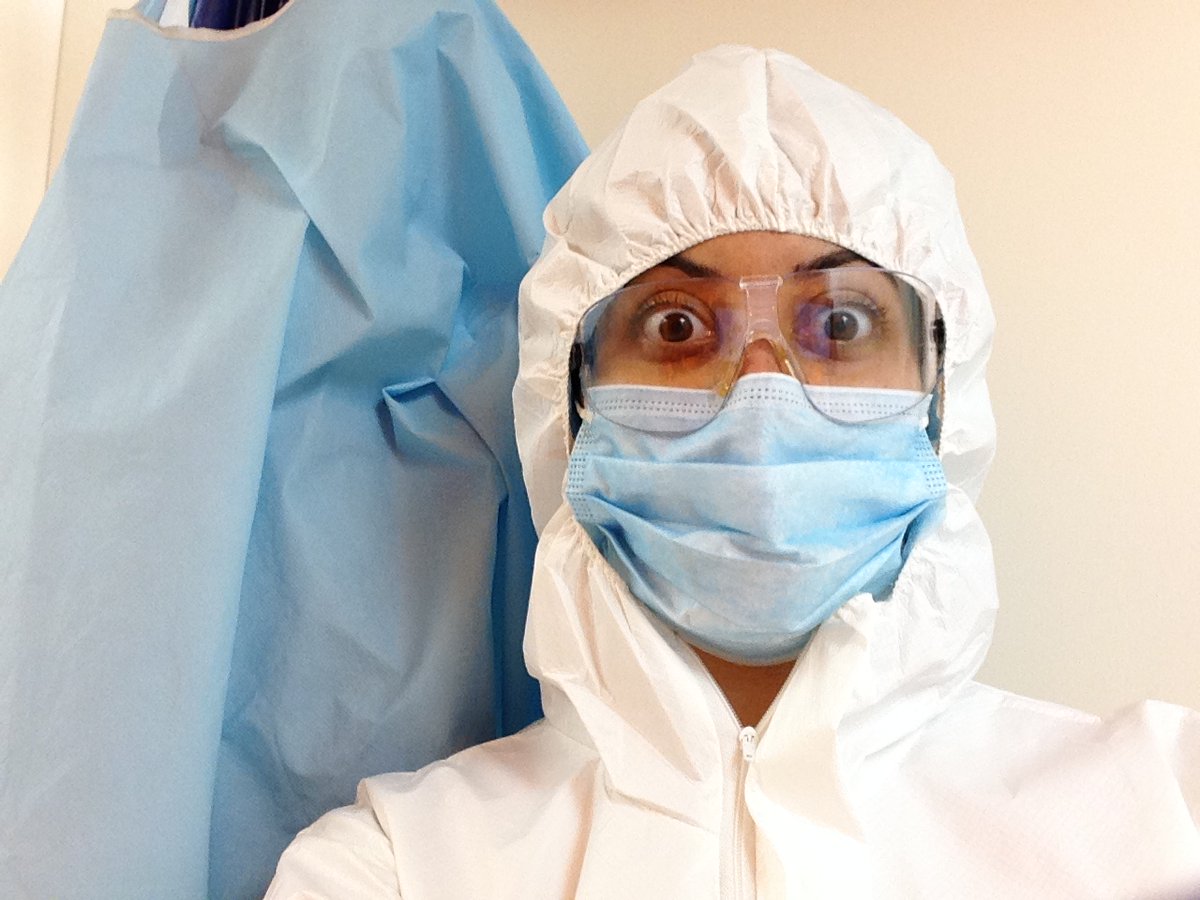 that persists in ancient tissues like https://abs.twimg.com/emoji/v2/... draggable="false" alt="🦷" title="Tooth" aria-label="Emoji: Tooth">https://abs.twimg.com/emoji/v2/... draggable="false" alt="🦴" title="Bone" aria-label="Emoji: Bone">https://abs.twimg.com/emoji/v2/... draggable="false" alt="💀" title="Skull" aria-label="Emoji: Skull">, or the remains of https://abs.twimg.com/emoji/v2/... draggable="false" alt="🦌" title="Deer" aria-label="Emoji: Deer">https://abs.twimg.com/emoji/v2/... draggable="false" alt="🌿" title="Herb" aria-label="Emoji: Herb">https://abs.twimg.com/emoji/v2/... draggable="false" alt="🐀" title="Rat" aria-label="Emoji: Rat">https://abs.twimg.com/emoji/v2/... draggable="false" alt="🐚" title="Spiral shell" aria-label="Emoji: Spiral shell">. It can inform us about evolution, ancient diversity & health. But bc of its age, aDNA is degraded and easily contaminated so we must handle it using lots of PPE, like this! 2/ #DecolonizeDNA" title="aDNA is thehttps://abs.twimg.com/emoji/v2/... draggable="false" alt="🧬" title="DNA" aria-label="Emoji: DNA">that persists in ancient tissues like https://abs.twimg.com/emoji/v2/... draggable="false" alt="🦷" title="Tooth" aria-label="Emoji: Tooth">https://abs.twimg.com/emoji/v2/... draggable="false" alt="🦴" title="Bone" aria-label="Emoji: Bone">https://abs.twimg.com/emoji/v2/... draggable="false" alt="💀" title="Skull" aria-label="Emoji: Skull">, or the remains of https://abs.twimg.com/emoji/v2/... draggable="false" alt="🦌" title="Deer" aria-label="Emoji: Deer">https://abs.twimg.com/emoji/v2/... draggable="false" alt="🌿" title="Herb" aria-label="Emoji: Herb">https://abs.twimg.com/emoji/v2/... draggable="false" alt="🐀" title="Rat" aria-label="Emoji: Rat">https://abs.twimg.com/emoji/v2/... draggable="false" alt="🐚" title="Spiral shell" aria-label="Emoji: Spiral shell">. It can inform us about evolution, ancient diversity & health. But bc of its age, aDNA is degraded and easily contaminated so we must handle it using lots of PPE, like this! 2/ #DecolonizeDNA" class="img-responsive" style="max-width:100%;"/>
that persists in ancient tissues like https://abs.twimg.com/emoji/v2/... draggable="false" alt="🦷" title="Tooth" aria-label="Emoji: Tooth">https://abs.twimg.com/emoji/v2/... draggable="false" alt="🦴" title="Bone" aria-label="Emoji: Bone">https://abs.twimg.com/emoji/v2/... draggable="false" alt="💀" title="Skull" aria-label="Emoji: Skull">, or the remains of https://abs.twimg.com/emoji/v2/... draggable="false" alt="🦌" title="Deer" aria-label="Emoji: Deer">https://abs.twimg.com/emoji/v2/... draggable="false" alt="🌿" title="Herb" aria-label="Emoji: Herb">https://abs.twimg.com/emoji/v2/... draggable="false" alt="🐀" title="Rat" aria-label="Emoji: Rat">https://abs.twimg.com/emoji/v2/... draggable="false" alt="🐚" title="Spiral shell" aria-label="Emoji: Spiral shell">. It can inform us about evolution, ancient diversity & health. But bc of its age, aDNA is degraded and easily contaminated so we must handle it using lots of PPE, like this! 2/ #DecolonizeDNA" title="aDNA is thehttps://abs.twimg.com/emoji/v2/... draggable="false" alt="🧬" title="DNA" aria-label="Emoji: DNA">that persists in ancient tissues like https://abs.twimg.com/emoji/v2/... draggable="false" alt="🦷" title="Tooth" aria-label="Emoji: Tooth">https://abs.twimg.com/emoji/v2/... draggable="false" alt="🦴" title="Bone" aria-label="Emoji: Bone">https://abs.twimg.com/emoji/v2/... draggable="false" alt="💀" title="Skull" aria-label="Emoji: Skull">, or the remains of https://abs.twimg.com/emoji/v2/... draggable="false" alt="🦌" title="Deer" aria-label="Emoji: Deer">https://abs.twimg.com/emoji/v2/... draggable="false" alt="🌿" title="Herb" aria-label="Emoji: Herb">https://abs.twimg.com/emoji/v2/... draggable="false" alt="🐀" title="Rat" aria-label="Emoji: Rat">https://abs.twimg.com/emoji/v2/... draggable="false" alt="🐚" title="Spiral shell" aria-label="Emoji: Spiral shell">. It can inform us about evolution, ancient diversity & health. But bc of its age, aDNA is degraded and easily contaminated so we must handle it using lots of PPE, like this! 2/ #DecolonizeDNA" class="img-responsive" style="max-width:100%;"/>
 https://abs.twimg.com/emoji/v2/... draggable="false" alt="🧬" title="DNA" aria-label="Emoji: DNA">+ other lines of evidencehttps://abs.twimg.com/emoji/v2/... draggable="false" alt="🔍" title="Left-pointing magnifying glass" aria-label="Emoji: Left-pointing magnifying glass">https://abs.twimg.com/emoji/v2/... draggable="false" alt="📋" title="Clipboard" aria-label="Emoji: Clipboard">https://abs.twimg.com/emoji/v2/... draggable="false" alt="🏺" title="Amphora" aria-label="Emoji: Amphora">https://abs.twimg.com/emoji/v2/... draggable="false" alt="⚰️" title="Coffin" aria-label="Emoji: Coffin">https://abs.twimg.com/emoji/v2/... draggable="false" alt="💀" title="Skull" aria-label="Emoji: Skull">can reconstruct past events & their impact in the present. This is a powerful https://abs.twimg.com/emoji/v2/... draggable="false" alt="🦸🏽" title="Superhero (medium skin tone)" aria-label="Emoji: Superhero (medium skin tone)">https://abs.twimg.com/emoji/v2/... draggable="false" alt="✊🏽" title="Raised fist (medium skin tone)" aria-label="Emoji: Raised fist (medium skin tone)">way to understand the experiences of ppls who were marginalized, excluded or misrepresented in the written historical record https://abs.twimg.com/emoji/v2/... draggable="false" alt="📜" title="Scroll" aria-label="Emoji: Scroll">3/ #DecolonizeDNA #DNADay" title="aDNAhttps://abs.twimg.com/emoji/v2/... draggable="false" alt="🦴" title="Bone" aria-label="Emoji: Bone">https://abs.twimg.com/emoji/v2/... draggable="false" alt="🧬" title="DNA" aria-label="Emoji: DNA">+ other lines of evidencehttps://abs.twimg.com/emoji/v2/... draggable="false" alt="🔍" title="Left-pointing magnifying glass" aria-label="Emoji: Left-pointing magnifying glass">https://abs.twimg.com/emoji/v2/... draggable="false" alt="📋" title="Clipboard" aria-label="Emoji: Clipboard">https://abs.twimg.com/emoji/v2/... draggable="false" alt="🏺" title="Amphora" aria-label="Emoji: Amphora">https://abs.twimg.com/emoji/v2/... draggable="false" alt="⚰️" title="Coffin" aria-label="Emoji: Coffin">https://abs.twimg.com/emoji/v2/... draggable="false" alt="💀" title="Skull" aria-label="Emoji: Skull">can reconstruct past events & their impact in the present. This is a powerful https://abs.twimg.com/emoji/v2/... draggable="false" alt="🦸🏽" title="Superhero (medium skin tone)" aria-label="Emoji: Superhero (medium skin tone)">https://abs.twimg.com/emoji/v2/... draggable="false" alt="✊🏽" title="Raised fist (medium skin tone)" aria-label="Emoji: Raised fist (medium skin tone)">way to understand the experiences of ppls who were marginalized, excluded or misrepresented in the written historical record https://abs.twimg.com/emoji/v2/... draggable="false" alt="📜" title="Scroll" aria-label="Emoji: Scroll">3/ #DecolonizeDNA #DNADay" class="img-responsive" style="max-width:100%;"/>
https://abs.twimg.com/emoji/v2/... draggable="false" alt="🧬" title="DNA" aria-label="Emoji: DNA">+ other lines of evidencehttps://abs.twimg.com/emoji/v2/... draggable="false" alt="🔍" title="Left-pointing magnifying glass" aria-label="Emoji: Left-pointing magnifying glass">https://abs.twimg.com/emoji/v2/... draggable="false" alt="📋" title="Clipboard" aria-label="Emoji: Clipboard">https://abs.twimg.com/emoji/v2/... draggable="false" alt="🏺" title="Amphora" aria-label="Emoji: Amphora">https://abs.twimg.com/emoji/v2/... draggable="false" alt="⚰️" title="Coffin" aria-label="Emoji: Coffin">https://abs.twimg.com/emoji/v2/... draggable="false" alt="💀" title="Skull" aria-label="Emoji: Skull">can reconstruct past events & their impact in the present. This is a powerful https://abs.twimg.com/emoji/v2/... draggable="false" alt="🦸🏽" title="Superhero (medium skin tone)" aria-label="Emoji: Superhero (medium skin tone)">https://abs.twimg.com/emoji/v2/... draggable="false" alt="✊🏽" title="Raised fist (medium skin tone)" aria-label="Emoji: Raised fist (medium skin tone)">way to understand the experiences of ppls who were marginalized, excluded or misrepresented in the written historical record https://abs.twimg.com/emoji/v2/... draggable="false" alt="📜" title="Scroll" aria-label="Emoji: Scroll">3/ #DecolonizeDNA #DNADay" title="aDNAhttps://abs.twimg.com/emoji/v2/... draggable="false" alt="🦴" title="Bone" aria-label="Emoji: Bone">https://abs.twimg.com/emoji/v2/... draggable="false" alt="🧬" title="DNA" aria-label="Emoji: DNA">+ other lines of evidencehttps://abs.twimg.com/emoji/v2/... draggable="false" alt="🔍" title="Left-pointing magnifying glass" aria-label="Emoji: Left-pointing magnifying glass">https://abs.twimg.com/emoji/v2/... draggable="false" alt="📋" title="Clipboard" aria-label="Emoji: Clipboard">https://abs.twimg.com/emoji/v2/... draggable="false" alt="🏺" title="Amphora" aria-label="Emoji: Amphora">https://abs.twimg.com/emoji/v2/... draggable="false" alt="⚰️" title="Coffin" aria-label="Emoji: Coffin">https://abs.twimg.com/emoji/v2/... draggable="false" alt="💀" title="Skull" aria-label="Emoji: Skull">can reconstruct past events & their impact in the present. This is a powerful https://abs.twimg.com/emoji/v2/... draggable="false" alt="🦸🏽" title="Superhero (medium skin tone)" aria-label="Emoji: Superhero (medium skin tone)">https://abs.twimg.com/emoji/v2/... draggable="false" alt="✊🏽" title="Raised fist (medium skin tone)" aria-label="Emoji: Raised fist (medium skin tone)">way to understand the experiences of ppls who were marginalized, excluded or misrepresented in the written historical record https://abs.twimg.com/emoji/v2/... draggable="false" alt="📜" title="Scroll" aria-label="Emoji: Scroll">3/ #DecolonizeDNA #DNADay" class="img-responsive" style="max-width:100%;"/>
 & the Caribbean for >5K yrs https://abs.twimg.com/emoji/v2/... draggable="false" alt="⌛️" title="Hourglass" aria-label="Emoji: Hourglass">https://abs.twimg.com/emoji/v2/... draggable="false" alt="💪" title="Flexed biceps" aria-label="Emoji: Flexed biceps">Thru #archaeology we know these were diverse & complex ppl w/dynamic interaction networks extending far beyond the Antilles 4/ #DecolonizeDNA #DNADay (Img: Hofman et al. 2018)" title="For ex: I study ancient Indigenous communities who lived in #PuertoRicohttps://abs.twimg.com/emoji/v2/... draggable="false" alt="🇵🇷" title="Flag of Puerto Rico" aria-label="Emoji: Flag of Puerto Rico">& the Caribbean for >5K yrs https://abs.twimg.com/emoji/v2/... draggable="false" alt="⌛️" title="Hourglass" aria-label="Emoji: Hourglass">https://abs.twimg.com/emoji/v2/... draggable="false" alt="💪" title="Flexed biceps" aria-label="Emoji: Flexed biceps">Thru #archaeology we know these were diverse & complex ppl w/dynamic interaction networks extending far beyond the Antilles 4/ #DecolonizeDNA #DNADay (Img: Hofman et al. 2018)" class="img-responsive" style="max-width:100%;"/>
& the Caribbean for >5K yrs https://abs.twimg.com/emoji/v2/... draggable="false" alt="⌛️" title="Hourglass" aria-label="Emoji: Hourglass">https://abs.twimg.com/emoji/v2/... draggable="false" alt="💪" title="Flexed biceps" aria-label="Emoji: Flexed biceps">Thru #archaeology we know these were diverse & complex ppl w/dynamic interaction networks extending far beyond the Antilles 4/ #DecolonizeDNA #DNADay (Img: Hofman et al. 2018)" title="For ex: I study ancient Indigenous communities who lived in #PuertoRicohttps://abs.twimg.com/emoji/v2/... draggable="false" alt="🇵🇷" title="Flag of Puerto Rico" aria-label="Emoji: Flag of Puerto Rico">& the Caribbean for >5K yrs https://abs.twimg.com/emoji/v2/... draggable="false" alt="⌛️" title="Hourglass" aria-label="Emoji: Hourglass">https://abs.twimg.com/emoji/v2/... draggable="false" alt="💪" title="Flexed biceps" aria-label="Emoji: Flexed biceps">Thru #archaeology we know these were diverse & complex ppl w/dynamic interaction networks extending far beyond the Antilles 4/ #DecolonizeDNA #DNADay (Img: Hofman et al. 2018)" class="img-responsive" style="max-width:100%;"/>
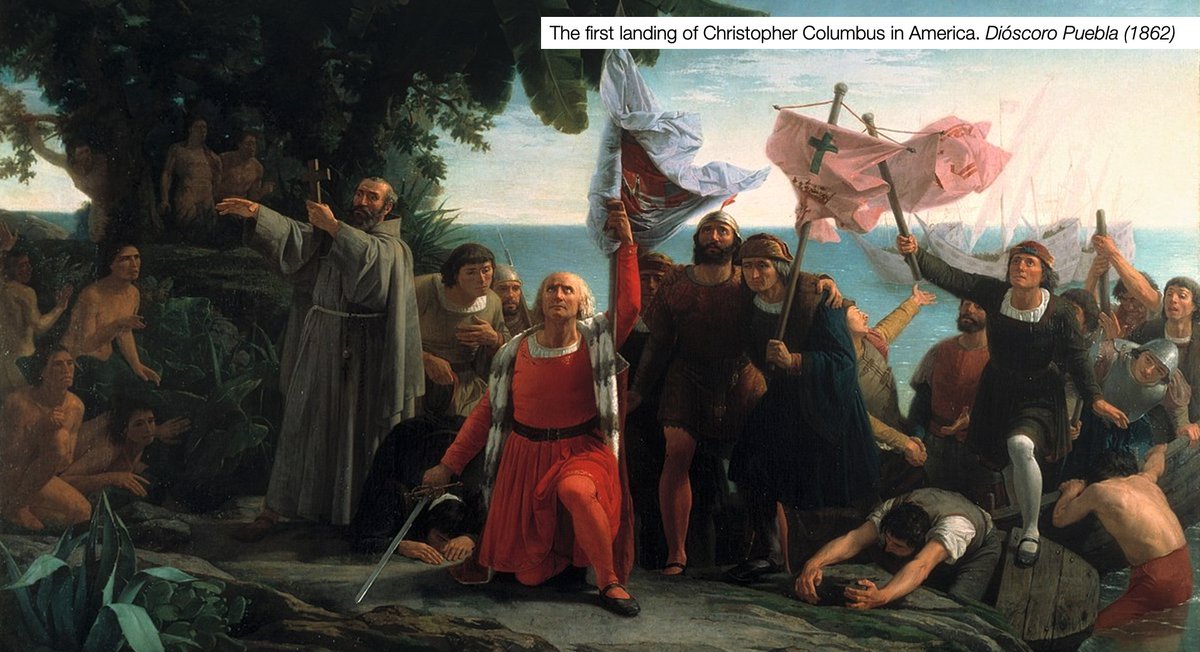 https://abs.twimg.com/emoji/v2/... draggable="false" alt="📜" title="Scroll" aria-label="Emoji: Scroll">https://abs.twimg.com/emoji/v2/... draggable="false" alt="🎨" title="Artist palette" aria-label="Emoji: Artist palette"> (like this painting) https://abs.twimg.com/emoji/v2/... draggable="false" alt="🤨" title="Face with raised eyebrow" aria-label="Emoji: Face with raised eyebrow">5/ #DecolonizeDNA" title="But Indigenous Caribbean ppls were also the 1st #NativeAmericans to experience European colonialism. BC of this our understanding of their story is fragmented & biased towards the colonizer& #39;s perspective as described in historicalhttps://abs.twimg.com/emoji/v2/... draggable="false" alt="✍️🏻" title="Writing hand (light skin tone)" aria-label="Emoji: Writing hand (light skin tone)">https://abs.twimg.com/emoji/v2/... draggable="false" alt="📜" title="Scroll" aria-label="Emoji: Scroll">https://abs.twimg.com/emoji/v2/... draggable="false" alt="🎨" title="Artist palette" aria-label="Emoji: Artist palette"> (like this painting) https://abs.twimg.com/emoji/v2/... draggable="false" alt="🤨" title="Face with raised eyebrow" aria-label="Emoji: Face with raised eyebrow">5/ #DecolonizeDNA" class="img-responsive" style="max-width:100%;"/>
https://abs.twimg.com/emoji/v2/... draggable="false" alt="📜" title="Scroll" aria-label="Emoji: Scroll">https://abs.twimg.com/emoji/v2/... draggable="false" alt="🎨" title="Artist palette" aria-label="Emoji: Artist palette"> (like this painting) https://abs.twimg.com/emoji/v2/... draggable="false" alt="🤨" title="Face with raised eyebrow" aria-label="Emoji: Face with raised eyebrow">5/ #DecolonizeDNA" title="But Indigenous Caribbean ppls were also the 1st #NativeAmericans to experience European colonialism. BC of this our understanding of their story is fragmented & biased towards the colonizer& #39;s perspective as described in historicalhttps://abs.twimg.com/emoji/v2/... draggable="false" alt="✍️🏻" title="Writing hand (light skin tone)" aria-label="Emoji: Writing hand (light skin tone)">https://abs.twimg.com/emoji/v2/... draggable="false" alt="📜" title="Scroll" aria-label="Emoji: Scroll">https://abs.twimg.com/emoji/v2/... draggable="false" alt="🎨" title="Artist palette" aria-label="Emoji: Artist palette"> (like this painting) https://abs.twimg.com/emoji/v2/... draggable="false" alt="🤨" title="Face with raised eyebrow" aria-label="Emoji: Face with raised eyebrow">5/ #DecolonizeDNA" class="img-responsive" style="max-width:100%;"/>
 in https://abs.twimg.com/emoji/v2/... draggable="false" alt="🇵🇷" title="Flag of Puerto Rico" aria-label="Emoji: Flag of Puerto Rico">, esp since https://abs.twimg.com/emoji/v2/... draggable="false" alt="🧬" title="DNA" aria-label="Emoji: DNA"> studies found present-day #boricuas #puertorican carry large proportions of Native American maternal ancestry in our mitochondrial genomes (mtDNA) https://abs.twimg.com/emoji/v2/... draggable="false" alt="👵🏼" title="Older woman (medium light skin tone)" aria-label="Emoji: Older woman (medium light skin tone)">https://abs.twimg.com/emoji/v2/... draggable="false" alt="🧬" title="DNA" aria-label="Emoji: DNA">https://abs.twimg.com/emoji/v2/... draggable="false" alt="➡️" title="Rightwards arrow" aria-label="Emoji: Rightwards arrow">https://abs.twimg.com/emoji/v2/... draggable="false" alt="👩🏻" title="Woman (light skin tone)" aria-label="Emoji: Woman (light skin tone)">https://abs.twimg.com/emoji/v2/... draggable="false" alt="🧬" title="DNA" aria-label="Emoji: DNA">https://abs.twimg.com/emoji/v2/... draggable="false" alt="➡️" title="Rightwards arrow" aria-label="Emoji: Rightwards arrow">https://abs.twimg.com/emoji/v2/... draggable="false" alt="👶🏼" title="Baby (medium light skin tone)" aria-label="Emoji: Baby (medium light skin tone)">https://abs.twimg.com/emoji/v2/... draggable="false" alt="🧬" title="DNA" aria-label="Emoji: DNA">7/ #DecolonizeDNA" title="These contrasting narratives, extinction vs survival, are fiercely debated https://abs.twimg.com/emoji/v2/... draggable="false" alt="🔥" title="Fire" aria-label="Emoji: Fire">in https://abs.twimg.com/emoji/v2/... draggable="false" alt="🇵🇷" title="Flag of Puerto Rico" aria-label="Emoji: Flag of Puerto Rico">, esp since https://abs.twimg.com/emoji/v2/... draggable="false" alt="🧬" title="DNA" aria-label="Emoji: DNA"> studies found present-day #boricuas #puertorican carry large proportions of Native American maternal ancestry in our mitochondrial genomes (mtDNA) https://abs.twimg.com/emoji/v2/... draggable="false" alt="👵🏼" title="Older woman (medium light skin tone)" aria-label="Emoji: Older woman (medium light skin tone)">https://abs.twimg.com/emoji/v2/... draggable="false" alt="🧬" title="DNA" aria-label="Emoji: DNA">https://abs.twimg.com/emoji/v2/... draggable="false" alt="➡️" title="Rightwards arrow" aria-label="Emoji: Rightwards arrow">https://abs.twimg.com/emoji/v2/... draggable="false" alt="👩🏻" title="Woman (light skin tone)" aria-label="Emoji: Woman (light skin tone)">https://abs.twimg.com/emoji/v2/... draggable="false" alt="🧬" title="DNA" aria-label="Emoji: DNA">https://abs.twimg.com/emoji/v2/... draggable="false" alt="➡️" title="Rightwards arrow" aria-label="Emoji: Rightwards arrow">https://abs.twimg.com/emoji/v2/... draggable="false" alt="👶🏼" title="Baby (medium light skin tone)" aria-label="Emoji: Baby (medium light skin tone)">https://abs.twimg.com/emoji/v2/... draggable="false" alt="🧬" title="DNA" aria-label="Emoji: DNA">7/ #DecolonizeDNA" class="img-responsive" style="max-width:100%;"/>
in https://abs.twimg.com/emoji/v2/... draggable="false" alt="🇵🇷" title="Flag of Puerto Rico" aria-label="Emoji: Flag of Puerto Rico">, esp since https://abs.twimg.com/emoji/v2/... draggable="false" alt="🧬" title="DNA" aria-label="Emoji: DNA"> studies found present-day #boricuas #puertorican carry large proportions of Native American maternal ancestry in our mitochondrial genomes (mtDNA) https://abs.twimg.com/emoji/v2/... draggable="false" alt="👵🏼" title="Older woman (medium light skin tone)" aria-label="Emoji: Older woman (medium light skin tone)">https://abs.twimg.com/emoji/v2/... draggable="false" alt="🧬" title="DNA" aria-label="Emoji: DNA">https://abs.twimg.com/emoji/v2/... draggable="false" alt="➡️" title="Rightwards arrow" aria-label="Emoji: Rightwards arrow">https://abs.twimg.com/emoji/v2/... draggable="false" alt="👩🏻" title="Woman (light skin tone)" aria-label="Emoji: Woman (light skin tone)">https://abs.twimg.com/emoji/v2/... draggable="false" alt="🧬" title="DNA" aria-label="Emoji: DNA">https://abs.twimg.com/emoji/v2/... draggable="false" alt="➡️" title="Rightwards arrow" aria-label="Emoji: Rightwards arrow">https://abs.twimg.com/emoji/v2/... draggable="false" alt="👶🏼" title="Baby (medium light skin tone)" aria-label="Emoji: Baby (medium light skin tone)">https://abs.twimg.com/emoji/v2/... draggable="false" alt="🧬" title="DNA" aria-label="Emoji: DNA">7/ #DecolonizeDNA" title="These contrasting narratives, extinction vs survival, are fiercely debated https://abs.twimg.com/emoji/v2/... draggable="false" alt="🔥" title="Fire" aria-label="Emoji: Fire">in https://abs.twimg.com/emoji/v2/... draggable="false" alt="🇵🇷" title="Flag of Puerto Rico" aria-label="Emoji: Flag of Puerto Rico">, esp since https://abs.twimg.com/emoji/v2/... draggable="false" alt="🧬" title="DNA" aria-label="Emoji: DNA"> studies found present-day #boricuas #puertorican carry large proportions of Native American maternal ancestry in our mitochondrial genomes (mtDNA) https://abs.twimg.com/emoji/v2/... draggable="false" alt="👵🏼" title="Older woman (medium light skin tone)" aria-label="Emoji: Older woman (medium light skin tone)">https://abs.twimg.com/emoji/v2/... draggable="false" alt="🧬" title="DNA" aria-label="Emoji: DNA">https://abs.twimg.com/emoji/v2/... draggable="false" alt="➡️" title="Rightwards arrow" aria-label="Emoji: Rightwards arrow">https://abs.twimg.com/emoji/v2/... draggable="false" alt="👩🏻" title="Woman (light skin tone)" aria-label="Emoji: Woman (light skin tone)">https://abs.twimg.com/emoji/v2/... draggable="false" alt="🧬" title="DNA" aria-label="Emoji: DNA">https://abs.twimg.com/emoji/v2/... draggable="false" alt="➡️" title="Rightwards arrow" aria-label="Emoji: Rightwards arrow">https://abs.twimg.com/emoji/v2/... draggable="false" alt="👶🏼" title="Baby (medium light skin tone)" aria-label="Emoji: Baby (medium light skin tone)">https://abs.twimg.com/emoji/v2/... draggable="false" alt="🧬" title="DNA" aria-label="Emoji: DNA">7/ #DecolonizeDNA" class="img-responsive" style="max-width:100%;"/>
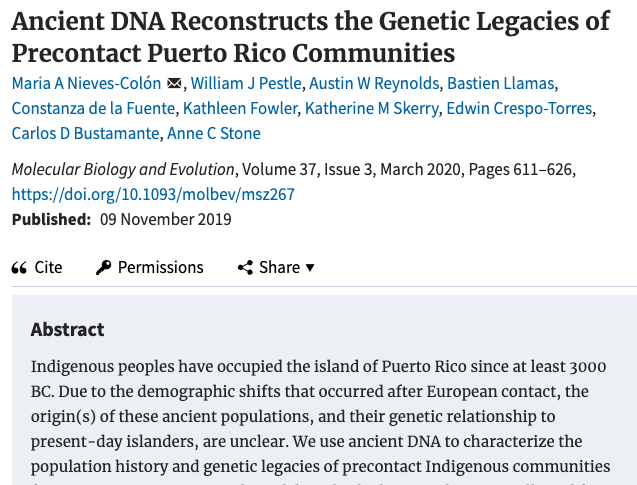 https://abs.twimg.com/emoji/v2/... draggable="false" alt="🧬" title="DNA" aria-label="Emoji: DNA"> to investigate the origins, diversity and genetic legacies of Puerto Rico& #39;s ancient communities 8/ #DecolonizeDNA #DNADay https://bit.ly/2yBoQkO&q..." title="Did some of this mtDNA ancestry come from native island ppls who survived colonization? To find out my colleagues and I used aDNA https://abs.twimg.com/emoji/v2/... draggable="false" alt="🦴" title="Bone" aria-label="Emoji: Bone">https://abs.twimg.com/emoji/v2/... draggable="false" alt="🧬" title="DNA" aria-label="Emoji: DNA"> to investigate the origins, diversity and genetic legacies of Puerto Rico& #39;s ancient communities 8/ #DecolonizeDNA #DNADay https://bit.ly/2yBoQkO&q..." class="img-responsive" style="max-width:100%;"/>
https://abs.twimg.com/emoji/v2/... draggable="false" alt="🧬" title="DNA" aria-label="Emoji: DNA"> to investigate the origins, diversity and genetic legacies of Puerto Rico& #39;s ancient communities 8/ #DecolonizeDNA #DNADay https://bit.ly/2yBoQkO&q..." title="Did some of this mtDNA ancestry come from native island ppls who survived colonization? To find out my colleagues and I used aDNA https://abs.twimg.com/emoji/v2/... draggable="false" alt="🦴" title="Bone" aria-label="Emoji: Bone">https://abs.twimg.com/emoji/v2/... draggable="false" alt="🧬" title="DNA" aria-label="Emoji: DNA"> to investigate the origins, diversity and genetic legacies of Puerto Rico& #39;s ancient communities 8/ #DecolonizeDNA #DNADay https://bit.ly/2yBoQkO&q..." class="img-responsive" style="max-width:100%;"/>
 https://abs.twimg.com/emoji/v2/... draggable="false" alt="🦷" title="Tooth" aria-label="Emoji: Tooth">of 124 ppl who lived at 3 pre-contact sites in https://abs.twimg.com/emoji/v2/... draggable="false" alt="🇵🇷" title="Flag of Puerto Rico" aria-label="Emoji: Flag of Puerto Rico"> incl. Tibes https://abs.twimg.com/emoji/v2/... draggable="false" alt="👇" title="Down pointing backhand index" aria-label="Emoji: Down pointing backhand index">. This was difficult bc aDNA does not preserve well in the tropics https://abs.twimg.com/emoji/v2/... draggable="false" alt="🏝️" title="Desert island" aria-label="Emoji: Desert island">https://abs.twimg.com/emoji/v2/... draggable="false" alt="🌞" title="Sun with face" aria-label="Emoji: Sun with face">https://abs.twimg.com/emoji/v2/... draggable="false" alt="🌧️" title="Cloud with rain" aria-label="Emoji: Cloud with rain">=https://abs.twimg.com/emoji/v2/... draggable="false" alt="☹️" title="Frowning face" aria-label="Emoji: Frowning face">https://abs.twimg.com/emoji/v2/... draggable="false" alt="🧬" title="DNA" aria-label="Emoji: DNA">. But we recovered 45 mtDNA genomes and compared them to those of modern islanders 9/ #DecolonizeDNA (Img: Enciclopedia PR)" title="We sampled https://abs.twimg.com/emoji/v2/... draggable="false" alt="🦴" title="Bone" aria-label="Emoji: Bone">https://abs.twimg.com/emoji/v2/... draggable="false" alt="🦷" title="Tooth" aria-label="Emoji: Tooth">of 124 ppl who lived at 3 pre-contact sites in https://abs.twimg.com/emoji/v2/... draggable="false" alt="🇵🇷" title="Flag of Puerto Rico" aria-label="Emoji: Flag of Puerto Rico"> incl. Tibes https://abs.twimg.com/emoji/v2/... draggable="false" alt="👇" title="Down pointing backhand index" aria-label="Emoji: Down pointing backhand index">. This was difficult bc aDNA does not preserve well in the tropics https://abs.twimg.com/emoji/v2/... draggable="false" alt="🏝️" title="Desert island" aria-label="Emoji: Desert island">https://abs.twimg.com/emoji/v2/... draggable="false" alt="🌞" title="Sun with face" aria-label="Emoji: Sun with face">https://abs.twimg.com/emoji/v2/... draggable="false" alt="🌧️" title="Cloud with rain" aria-label="Emoji: Cloud with rain">=https://abs.twimg.com/emoji/v2/... draggable="false" alt="☹️" title="Frowning face" aria-label="Emoji: Frowning face">https://abs.twimg.com/emoji/v2/... draggable="false" alt="🧬" title="DNA" aria-label="Emoji: DNA">. But we recovered 45 mtDNA genomes and compared them to those of modern islanders 9/ #DecolonizeDNA (Img: Enciclopedia PR)" class="img-responsive" style="max-width:100%;"/>
https://abs.twimg.com/emoji/v2/... draggable="false" alt="🦷" title="Tooth" aria-label="Emoji: Tooth">of 124 ppl who lived at 3 pre-contact sites in https://abs.twimg.com/emoji/v2/... draggable="false" alt="🇵🇷" title="Flag of Puerto Rico" aria-label="Emoji: Flag of Puerto Rico"> incl. Tibes https://abs.twimg.com/emoji/v2/... draggable="false" alt="👇" title="Down pointing backhand index" aria-label="Emoji: Down pointing backhand index">. This was difficult bc aDNA does not preserve well in the tropics https://abs.twimg.com/emoji/v2/... draggable="false" alt="🏝️" title="Desert island" aria-label="Emoji: Desert island">https://abs.twimg.com/emoji/v2/... draggable="false" alt="🌞" title="Sun with face" aria-label="Emoji: Sun with face">https://abs.twimg.com/emoji/v2/... draggable="false" alt="🌧️" title="Cloud with rain" aria-label="Emoji: Cloud with rain">=https://abs.twimg.com/emoji/v2/... draggable="false" alt="☹️" title="Frowning face" aria-label="Emoji: Frowning face">https://abs.twimg.com/emoji/v2/... draggable="false" alt="🧬" title="DNA" aria-label="Emoji: DNA">. But we recovered 45 mtDNA genomes and compared them to those of modern islanders 9/ #DecolonizeDNA (Img: Enciclopedia PR)" title="We sampled https://abs.twimg.com/emoji/v2/... draggable="false" alt="🦴" title="Bone" aria-label="Emoji: Bone">https://abs.twimg.com/emoji/v2/... draggable="false" alt="🦷" title="Tooth" aria-label="Emoji: Tooth">of 124 ppl who lived at 3 pre-contact sites in https://abs.twimg.com/emoji/v2/... draggable="false" alt="🇵🇷" title="Flag of Puerto Rico" aria-label="Emoji: Flag of Puerto Rico"> incl. Tibes https://abs.twimg.com/emoji/v2/... draggable="false" alt="👇" title="Down pointing backhand index" aria-label="Emoji: Down pointing backhand index">. This was difficult bc aDNA does not preserve well in the tropics https://abs.twimg.com/emoji/v2/... draggable="false" alt="🏝️" title="Desert island" aria-label="Emoji: Desert island">https://abs.twimg.com/emoji/v2/... draggable="false" alt="🌞" title="Sun with face" aria-label="Emoji: Sun with face">https://abs.twimg.com/emoji/v2/... draggable="false" alt="🌧️" title="Cloud with rain" aria-label="Emoji: Cloud with rain">=https://abs.twimg.com/emoji/v2/... draggable="false" alt="☹️" title="Frowning face" aria-label="Emoji: Frowning face">https://abs.twimg.com/emoji/v2/... draggable="false" alt="🧬" title="DNA" aria-label="Emoji: DNA">. But we recovered 45 mtDNA genomes and compared them to those of modern islanders 9/ #DecolonizeDNA (Img: Enciclopedia PR)" class="img-responsive" style="max-width:100%;"/>
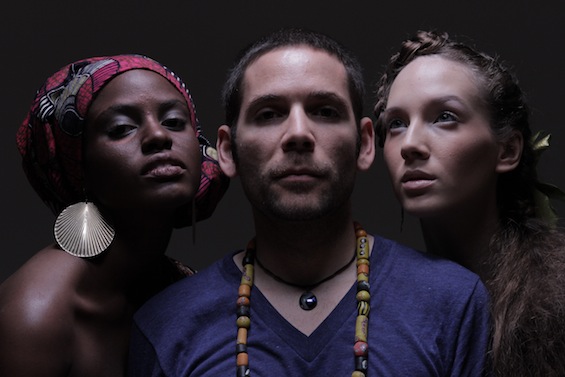
 -https://abs.twimg.com/emoji/v2/... draggable="false" alt="🇺🇸" title="Flag of United States" aria-label="Emoji: Flag of United States">, topic for another threadhttps://abs.twimg.com/emoji/v2/... draggable="false" alt="😉" title="Winking face" aria-label="Emoji: Winking face">) 12/ #DecolonizeDNA" title="Why does this matter? Well, in PR Indigenous ancestry is central to ethnic & national identity. Pre-contact art forms are symbols of #boricua culture & political empowerment (especially bc of our continued quasi-colonial statushttps://abs.twimg.com/emoji/v2/... draggable="false" alt="🇵🇷" title="Flag of Puerto Rico" aria-label="Emoji: Flag of Puerto Rico">-https://abs.twimg.com/emoji/v2/... draggable="false" alt="🇺🇸" title="Flag of United States" aria-label="Emoji: Flag of United States">, topic for another threadhttps://abs.twimg.com/emoji/v2/... draggable="false" alt="😉" title="Winking face" aria-label="Emoji: Winking face">) 12/ #DecolonizeDNA" class="img-responsive" style="max-width:100%;"/>
-https://abs.twimg.com/emoji/v2/... draggable="false" alt="🇺🇸" title="Flag of United States" aria-label="Emoji: Flag of United States">, topic for another threadhttps://abs.twimg.com/emoji/v2/... draggable="false" alt="😉" title="Winking face" aria-label="Emoji: Winking face">) 12/ #DecolonizeDNA" title="Why does this matter? Well, in PR Indigenous ancestry is central to ethnic & national identity. Pre-contact art forms are symbols of #boricua culture & political empowerment (especially bc of our continued quasi-colonial statushttps://abs.twimg.com/emoji/v2/... draggable="false" alt="🇵🇷" title="Flag of Puerto Rico" aria-label="Emoji: Flag of Puerto Rico">-https://abs.twimg.com/emoji/v2/... draggable="false" alt="🇺🇸" title="Flag of United States" aria-label="Emoji: Flag of United States">, topic for another threadhttps://abs.twimg.com/emoji/v2/... draggable="false" alt="😉" title="Winking face" aria-label="Emoji: Winking face">) 12/ #DecolonizeDNA" class="img-responsive" style="max-width:100%;"/>
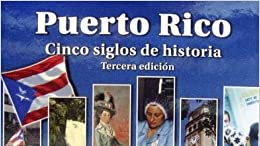 https://abs.twimg.com/emoji/v2/... draggable="false" alt="🤦🏻" title="Person facepalming (light skin tone)" aria-label="Emoji: Person facepalming (light skin tone)">13/ #DecolonizeDNA #DNADay (Img: http://Amazon.com )" title="Yet this native pride coexists w/firmly grounded extinction narratives & the erasure of our Indigenous (& African) ancestors. Even my 10th grade history class textbook described 500 not 5,000 years of history! https://abs.twimg.com/emoji/v2/... draggable="false" alt="🙄" title="Face with rolling eyes" aria-label="Emoji: Face with rolling eyes">https://abs.twimg.com/emoji/v2/... draggable="false" alt="🤦🏻" title="Person facepalming (light skin tone)" aria-label="Emoji: Person facepalming (light skin tone)">13/ #DecolonizeDNA #DNADay (Img: http://Amazon.com )" class="img-responsive" style="max-width:100%;"/>
https://abs.twimg.com/emoji/v2/... draggable="false" alt="🤦🏻" title="Person facepalming (light skin tone)" aria-label="Emoji: Person facepalming (light skin tone)">13/ #DecolonizeDNA #DNADay (Img: http://Amazon.com )" title="Yet this native pride coexists w/firmly grounded extinction narratives & the erasure of our Indigenous (& African) ancestors. Even my 10th grade history class textbook described 500 not 5,000 years of history! https://abs.twimg.com/emoji/v2/... draggable="false" alt="🙄" title="Face with rolling eyes" aria-label="Emoji: Face with rolling eyes">https://abs.twimg.com/emoji/v2/... draggable="false" alt="🤦🏻" title="Person facepalming (light skin tone)" aria-label="Emoji: Person facepalming (light skin tone)">13/ #DecolonizeDNA #DNADay (Img: http://Amazon.com )" class="img-responsive" style="max-width:100%;"/>
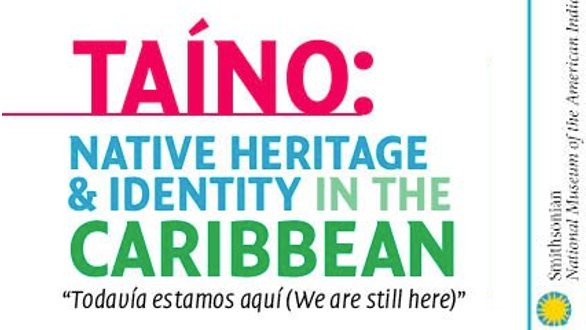 & https://abs.twimg.com/emoji/v2/... draggable="false" alt="🦴" title="Bone" aria-label="Emoji: Bone">https://abs.twimg.com/emoji/v2/... draggable="false" alt="🧬" title="DNA" aria-label="Emoji: DNA">data are also influencing public discourse on Indigenous heritage, survival & identity 14/ #DecolonizeDNA (Img: https://americanindian.si.edu/">..." title="Indigenous activist & resurgent movements in the Caribbean & US diaspora have opposed the extinction narratives for yrs. But now https://abs.twimg.com/emoji/v2/... draggable="false" alt="🧬" title="DNA" aria-label="Emoji: DNA"> & https://abs.twimg.com/emoji/v2/... draggable="false" alt="🦴" title="Bone" aria-label="Emoji: Bone">https://abs.twimg.com/emoji/v2/... draggable="false" alt="🧬" title="DNA" aria-label="Emoji: DNA">data are also influencing public discourse on Indigenous heritage, survival & identity 14/ #DecolonizeDNA (Img: https://americanindian.si.edu/">..." class="img-responsive" style="max-width:100%;"/>
& https://abs.twimg.com/emoji/v2/... draggable="false" alt="🦴" title="Bone" aria-label="Emoji: Bone">https://abs.twimg.com/emoji/v2/... draggable="false" alt="🧬" title="DNA" aria-label="Emoji: DNA">data are also influencing public discourse on Indigenous heritage, survival & identity 14/ #DecolonizeDNA (Img: https://americanindian.si.edu/">..." title="Indigenous activist & resurgent movements in the Caribbean & US diaspora have opposed the extinction narratives for yrs. But now https://abs.twimg.com/emoji/v2/... draggable="false" alt="🧬" title="DNA" aria-label="Emoji: DNA"> & https://abs.twimg.com/emoji/v2/... draggable="false" alt="🦴" title="Bone" aria-label="Emoji: Bone">https://abs.twimg.com/emoji/v2/... draggable="false" alt="🧬" title="DNA" aria-label="Emoji: DNA">data are also influencing public discourse on Indigenous heritage, survival & identity 14/ #DecolonizeDNA (Img: https://americanindian.si.edu/">..." class="img-responsive" style="max-width:100%;"/>


